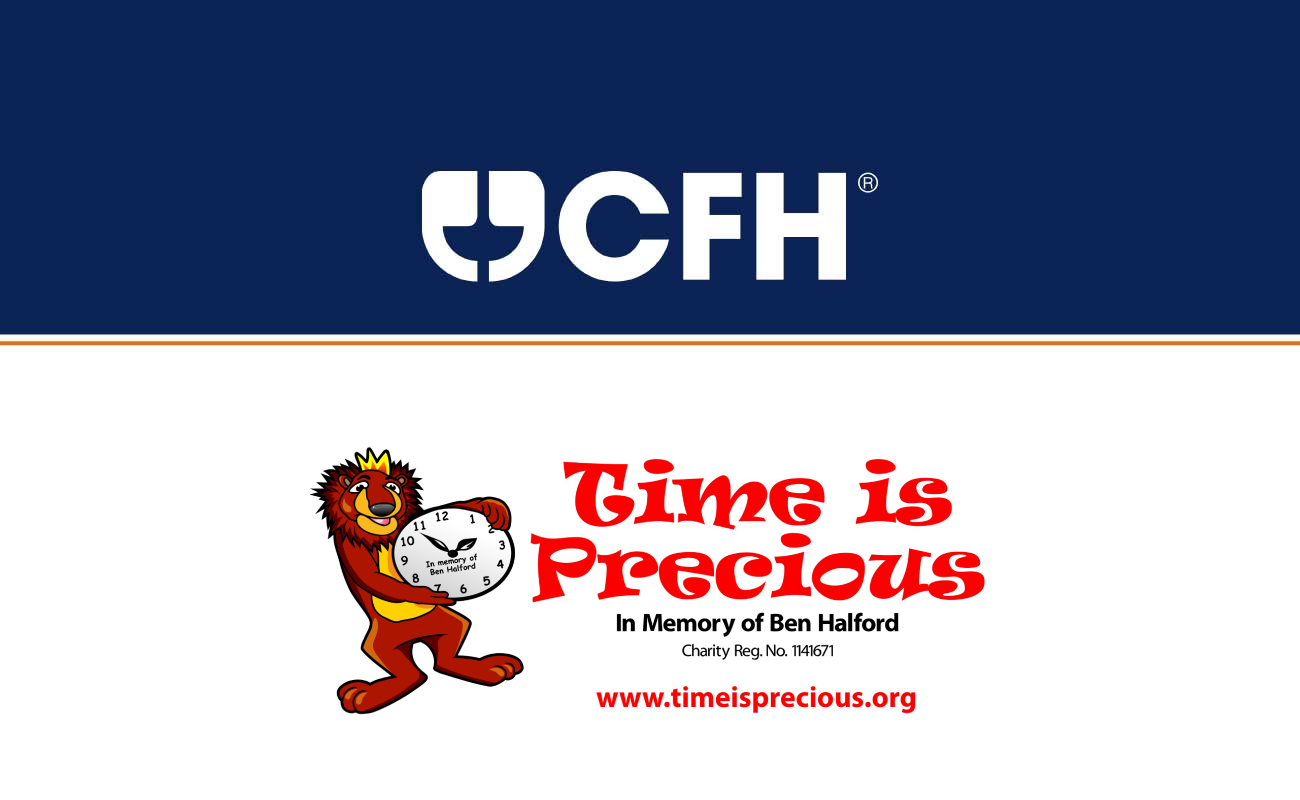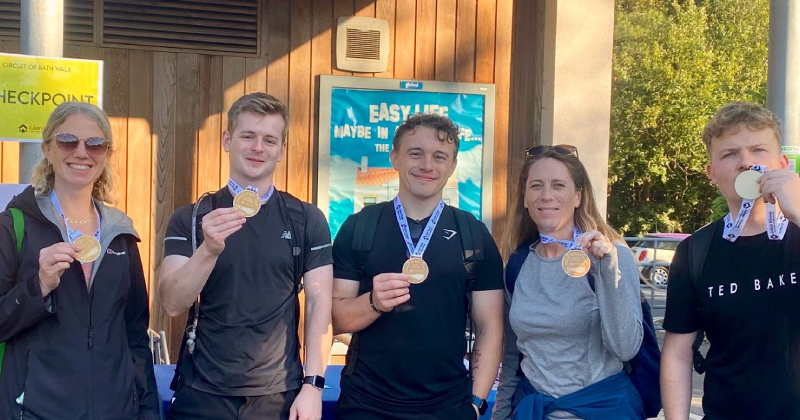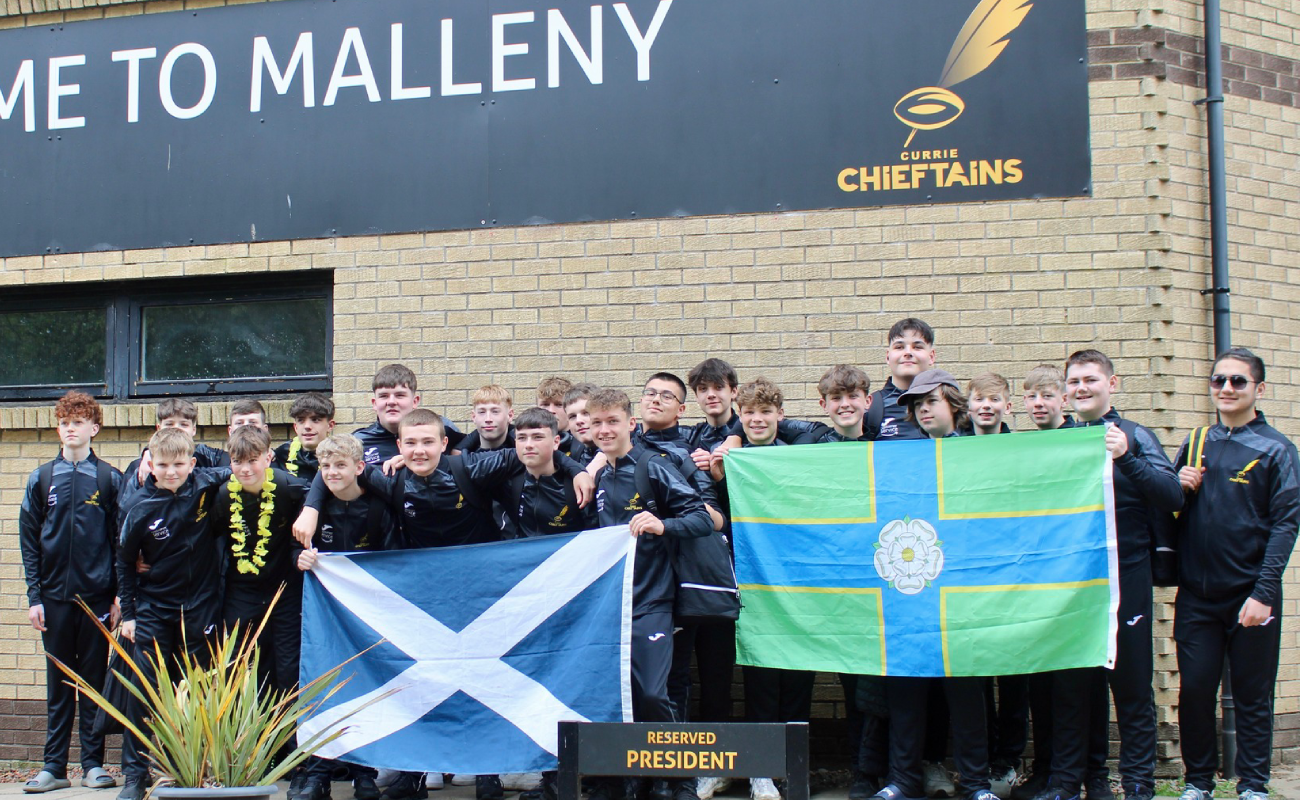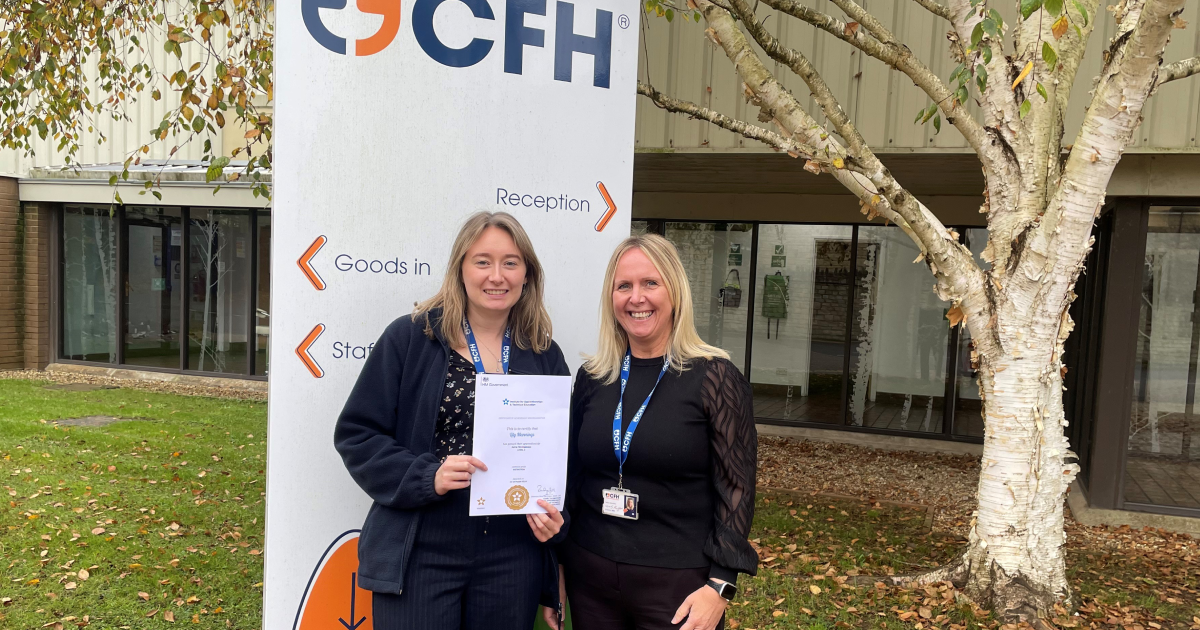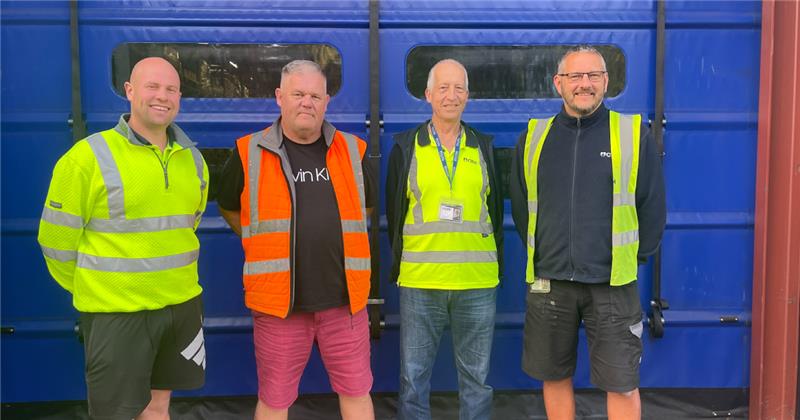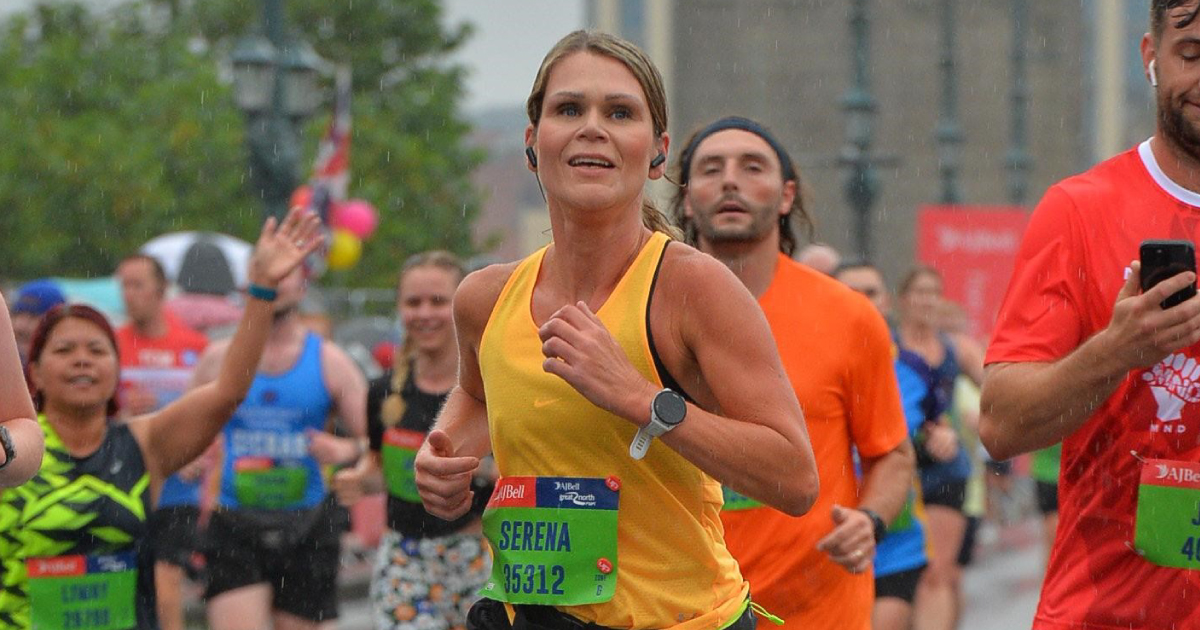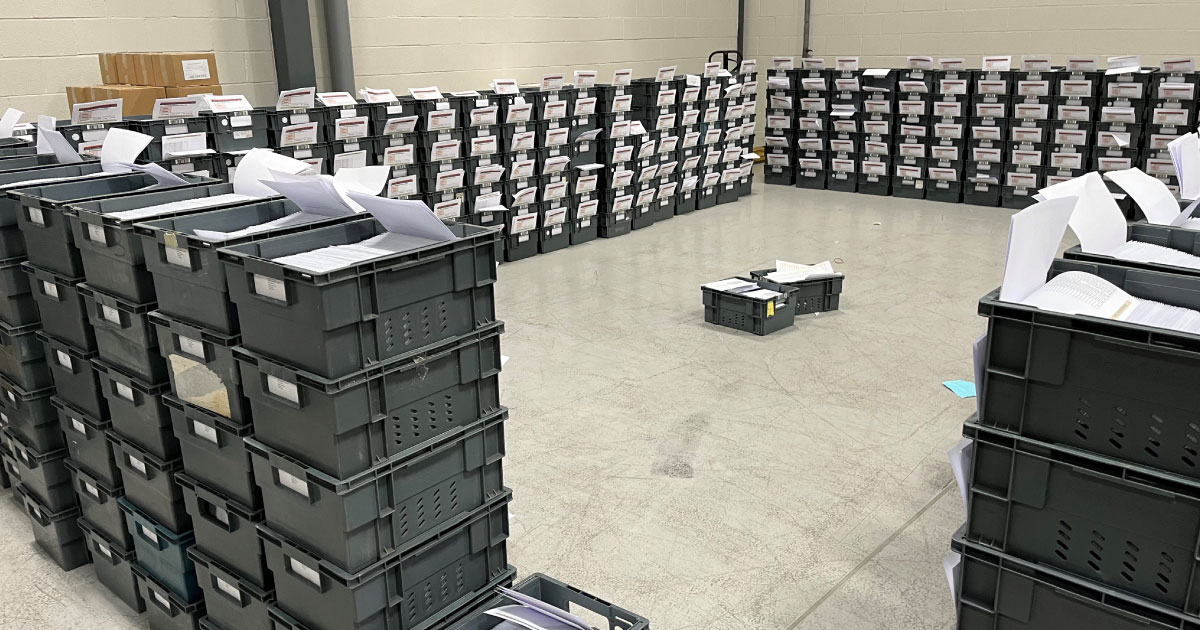By day, Steven ‘Stevie’ McKenna helps keep CFH’s digital systems running smoothly as an IT Application Developer. But away from the PC, he’s been taking on something far tougher than any workplace task.
This year, Steven has been pushing himself beyond his limits, taking on the West Highland Way Triple Crown – a three-part challenge spanning 190 miles of unforgiving Scottish terrain. It’s taken months of training, focus, and determination – all motivated by a personal fundraising mission for the neonatal unit that cared for both of his young children.
For 2025, Steven set out to complete the West Highland Way Triple Crown - a formidable running challenge that makes even the most accomplished endurance runners wince. Made up of three ultra-marathon races along the iconic West Highland Way, each run is daunting in its own right.
The 42-mile Devil o’ the Highlands, the 95-mile West Highland Way Race, and the 53-mile Highland Fling cover 190 miles of hills, lochs, and rocky trails collectively. That’s without factoring in the unpredictable Scottish weather…
It’s one of the toughest endurance challenges in the UK, but Steven’s reason for attempting it isn’t simply for personal achievement. In 2020, Steven’s daughter was born 12 weeks early. Weighing just 2 lbs 9 oz, she spent 67 days in the Neonatal Unit at Wishaw General Hospital. Three years later, when his son was born, he too needed the same specialist care.
Steven had previously raised money for the unit by running a 50k, but the Triple Crown was initially something he set out to do just for himself. That changed earlier this year, on his daughter’s fifth birthday.
“We were looking back at photos from when she was in hospital, and there was one of us handing over the cheque from the last fundraiser,” Steven explains. “She looked at it and said, Daddy, are you doing your big races again to help the nurses and doctors that saved me? And that was it. I wasn’t doing it for charity at the time - but from then on, I was.”
The first race of the series took place in April this year: the Devil o’ the Highlands, a 42-mile stretch from Tyndrum to Fort William. Though the shortest of the three, it gave Steven an unexpected edge ahead of the longer race in June.
"Historically people run the Fling first, then the WHW, then the Devil,” he says. “So when they get to Tyndrum during the WHW Race, they still have 42 miles to go and no real idea what it’ll feel like. However this year the Fling and the Devil were swapped around, so I’d already done that stretch in April. I knew what was coming.”
The second (and longest) race came in June. The West Highland Way Race covers 95 miles, beginning at 1am in Milngavie and ending in Fort William, with a strict 35-hour time limit enforced.
“The first 19 miles to Balmaha were through the night, but it was still 19 degrees and humid,” Steven recalls. “The midges were everywhere, so you didn’t hang about at checkpoints - you just got what you needed and moved on.”
As daylight broke, the route entered one of its most infamous stretches: the East side of Loch Lomond. “There’s no road access for miles. That whole section was built by hand, with everything brought in by boat. It’s boulder-strewn, uneven, and impossible to run in parts. It’s like a natural obstacle course.”
Despite being relatively flat, this section is known for injuries and required constant focus. “You have to keep your head on a swivel. People have broken toes, feet - even legs on that section. There’s one runner who had to be evacuated by boat.”
Preparation can only get you so far when sleep isn’t possible. “I got two and a half hours on Friday morning before the race,” Steven says. “Then I was awake from about half twelve on Friday until seven o’clock on Sunday morning.”
Although some checkpoints offered space to rest, Steven chose to keep going. “I just wanted to move forward. That said, I did start spending longer and longer at the checkpoints the further into the race I got.”
By Glencoe, the impact of over 70 miles of continuous effort was taking its toll. “My crew had to tape everything up - blister plasters, bandages, you name it. If they hadn’t done that, my feet would’ve completely fallen apart.”

Every runner in the WHW Race must have a support crew, including a driver and someone capable of pacing. Steven didn’t simply meet these criteria, he brought a whole team of runners with varying levels of experience, each playing a role.
“Ideally, you want two with you when you’re out on the course,” he says. “If you hit a low point mentally, they can chat and keep the energy up while you dip in and out of the conversation.”
“I wanted to share the experience with them,” Steven adds. “They were at different stages of their own running journeys, and I hoped this might inspire them.” Following plenty of blood, sweat, and tears, Steven finished the race in 28 hours, 18 minutes, and 13 seconds. With a mile and a half to go, the entire crew regrouped so they could cross the line together. “I wanted them all to feel what I felt. We’d done it together.”
It wasn’t until a few days later, while planning a family trip, that the magnitude of the achievement began to sink in.
“We were watching the weather forecast before going to the zoo. They had the map up - Glasgow, Edinburgh, Aberdeen, Inverness, Fort William. And I suddenly thought, ‘I ran from there to there.’ Seeing it on the map of Scotland just put it into perspective.”
Now, Steven is preparing for the third and final race: the Highland Fling, a 53-mile event from Milngavie to Tyndrum. “I’ve got to respect it. Fifty-three miles is still fifty-three miles,” he says. “But I’ve covered the route twice already - during training and during the WHW Race. This one’s about staying fresh and fit.”
Unlike the WHW Race, Steven’s family will be there to see him finish. “It ends with a proper red carpet and flags all the way down the last stretch. The kids will be at the finish this time. That’s what matters.”
Throughout the challenge, Steven has documented everything on Instagram, helping him stay accountable and remain inspired. “I tell people to document their own progress. Not for others, but for themselves. On the tough days, you can look back and see how far you’ve come.”
“If someone sees this and decides to sign up for their first 5K, or even just to get out the door - that’s a win. That’s what running communities are all about. Nobody judges you. Everyone supports each other.”
As for what’s next, Steven’s not making any bold predictions. “Right now, the focus is on finishing that final race strong. After that, we’ll see.”
When he crosses that red carpet finish line in September. family waiting, crew cheering, challenge complete, there will be absolutely no doubt about what it’s taken to get there. Consider us his biggest fans at CFH!
Stevie has already smashed his original £1000 target, but there’s still time to support the cause. Every donation, big or small, makes a difference. If you’d like to contribute, you can still do so by following this link.
